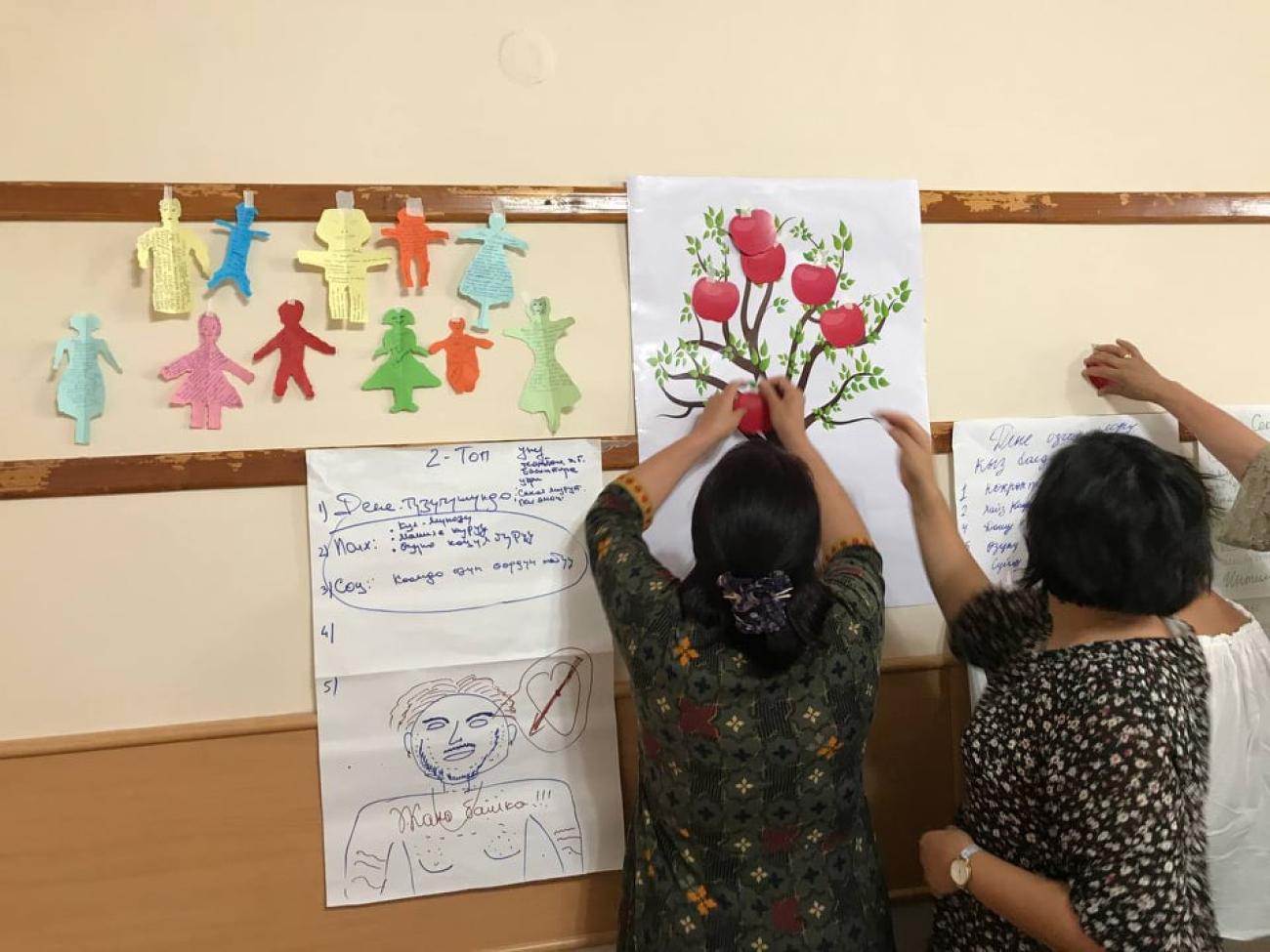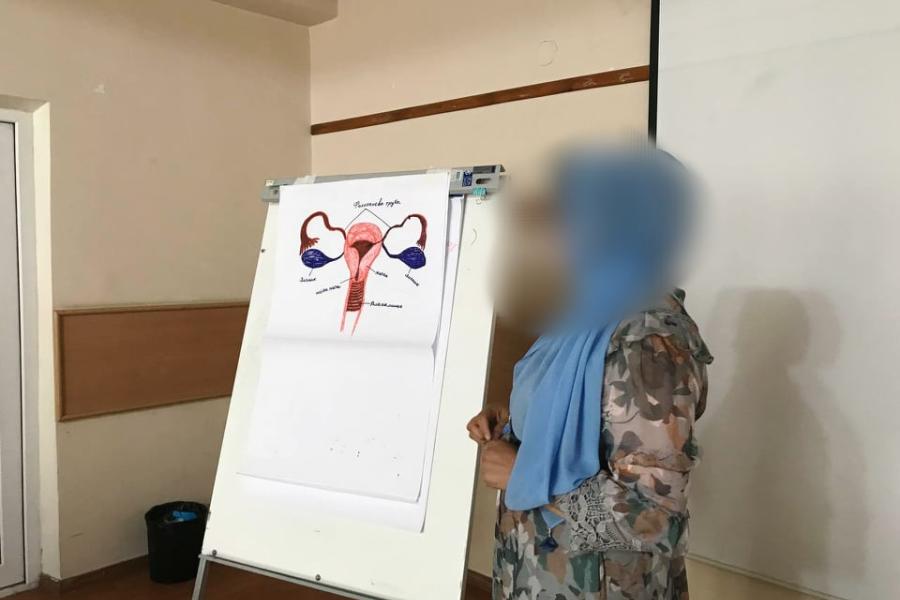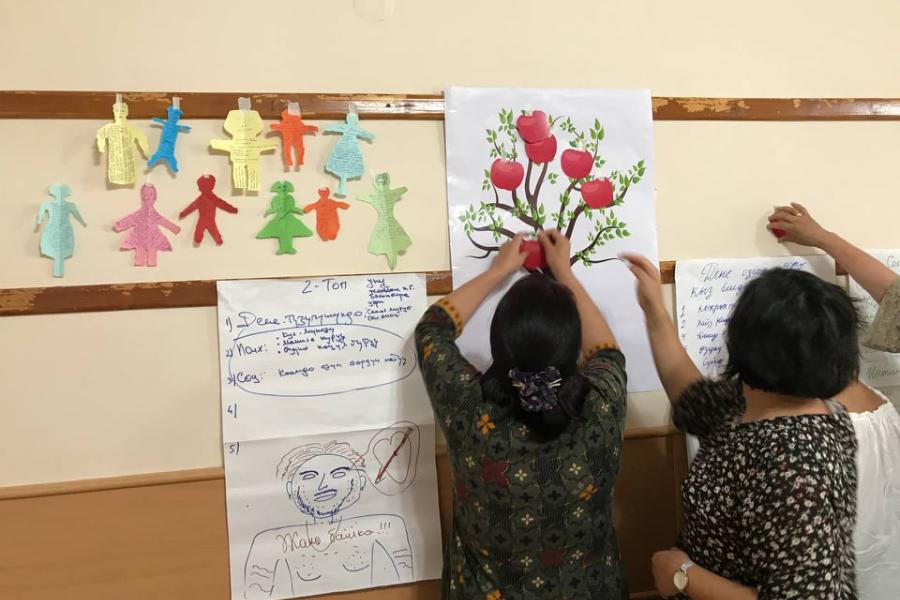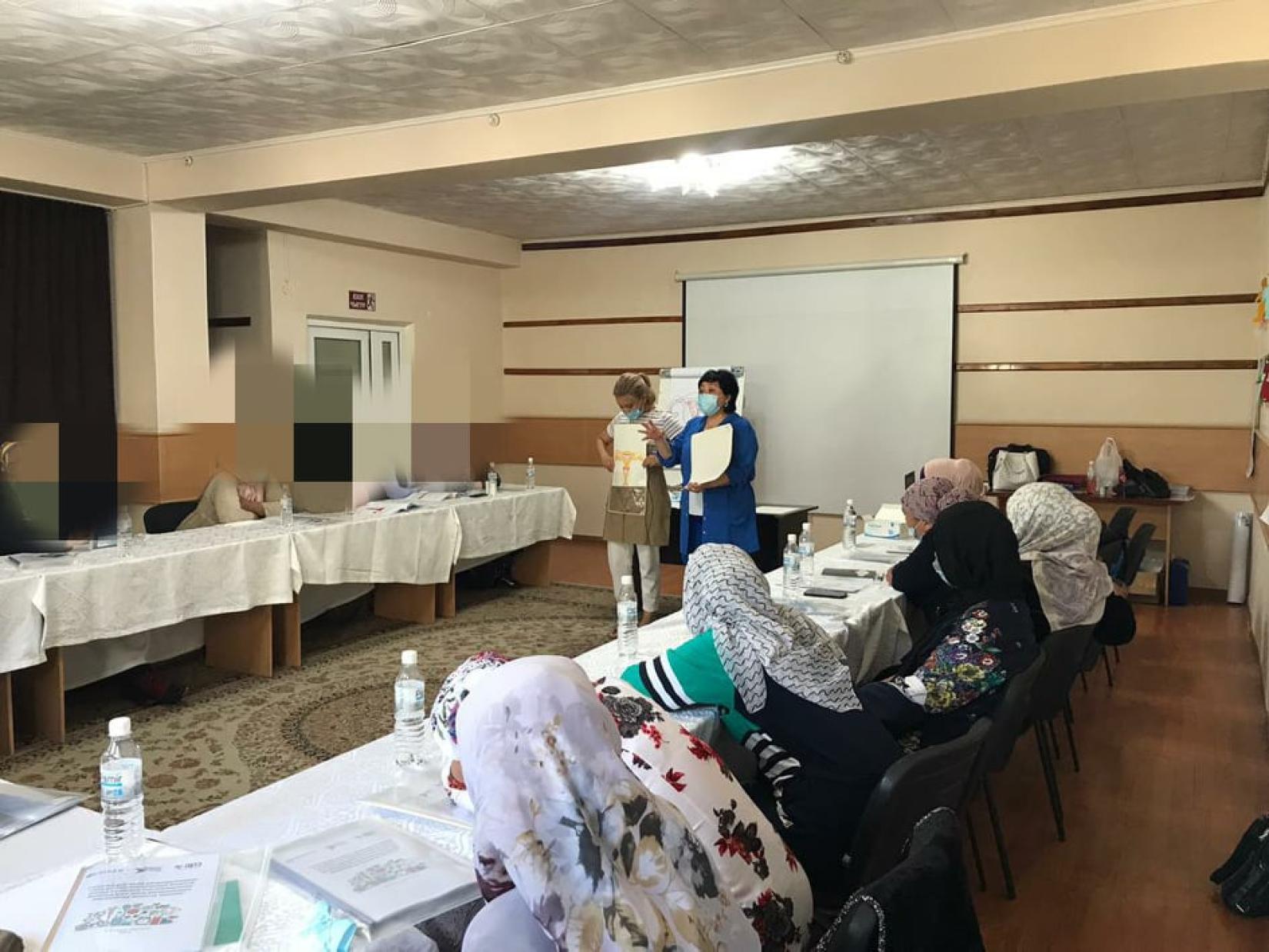Sexual education and HIV in Kyrgyzstan

A series of trainings on sexual education and reproductive health for teenagers and young people with HIV status and their parents was conducted in Kyrgyzstan.
“I am 18 years old and I am already thinking about marriage. Our people marry at an early age. I am afraid that having a HIV status I will not be able to find a boyfriend, which means I will not have a full-fledged family”, says a training participant from Osh, Kyrgyzstan.
“Previous trainings which we attended before were always about our HIV status, I am so tired of them. Now for the first time we discussed delicate topics. I was able to ask a question about stains that happen to appear on boys’ underwear and finally understood that it is not dangerous at all”, says a 17 years old training participant.

“I have always been shy to discuss ‘those’ topics with my daughters. Now I understand that talking to girls about menstruation and hygiene is necessary and important. I was a teenager myself and I remember how afraid I was to tell my mother about my first menstruation”, says a 44 years’ old mother of a girl with a HIV status.
A series of trainings on sexual education and reproductive health for teenagers and young people with HIV status and their parents was conducted in Kyrgyzstan in June - July 2021.
Sexual education still causes a lot of disputes in Kyrgyzstan, but the statistics on early marriages, abortion and high-profile cases of violence against teenagers in the country suggest the importance of its further promotion. According to the National Statistical Committee, in 2019 there were 1,470 cases of abortion in the under-20 group; in 2020 there were 934 such cases. The decrease in statistics occurred against the background of the coronavirus infection, when many girls were not able to get safe abortion services. According to the Kyrgyz Children’s Ombudsperson, in 2020 out of 287 cases of violence against children and teenagers, 151 victims were adolescent girls, and 63 cases were cases of sexual violence.
“Teenagers and young people living with HIV are also subject to various kinds of violence and it is necessary to strengthen the integration of HIV prevention and treatment programs with programs on sexual education and reproductive health. We are convinced that teenagers need comprehensive help, not only trainings on how to accept their status. It is important to develop leadership capacity, teach adolescents to identify violence and destroy self-stigma,” says Ms. Meerim Sarybaeva, UNAIDS Country Director in Kyrgyzstan.

The trainings were conducted in partnership with the “Araket Plus” Public Foundation and the national organization “Alliance for Reproductive Health” (ARH), with the support from the Russian Technical Assistance Program, implemented by the UNAIDS Country Office.
Ms. Galina Chirkina, Executive Director of ARH says:
“The link between sexual and reproductive health and HIV is obvious to specialists who work in this area, but not always evident to ordinary people or teenagers with HIV. At ARH we always mention the comprehensive approach to health issues, about the integration of SRH and HIV programs. We teach young people with HIV the general understanding of how he or she can have a healthy sex life, how to make it safe for himself or herself and his or her partner, and how to plan their family”.
Simultaneously with the trainings for teenagers trainings for their parents were organized. Parents need to understand the personal boundaries of teenagers, the importance of interpersonal communication and learn how to talk to their children about difficult and sometimes quite delicate topics.
Mr. Uluk Batyrgaliev, is a sexual and reproductive health trainer from ARH. Uluk worked with a group of parents and shared his impressions:
“The parents were satisfied with our work; we received many words of gratitude. On the first day of the training they got used to us, but after that they had full trusted in us and told stories of how they or their children got HIV status. Listening to them causes a lot of pain. Most parents are concerned about their children’s future, whether people without HIV status would want to meet their children who have HIV was one of the main questions all the parents asked us. I was struck by the persistent self-stigmatization in the parenting community. For me as a person who values freedom of choice, it was surprising to hear about parents making arrangements with each other in advance and marrying their children so as not to infect the “clean” ones. The word “clean” is used by the parents in relation to people without HIV. It seems to me that this attitude creates incredible self-stigmatization within the family and makes teenagers even more depressed”.

The previous training sessions for parents dealt with contraception, how adults can tell their grown-up children about contraceptive methods and show them a condom that will protect not only from unwanted pregnancy, but also from STIs. The parents of adolescents with HIV learned that violence can have many forms and types.
The majority of teenagers listen to the people who respect their opinions and do not try to devalue their personal experiences. Being aware of teenagers’ rights to their own point of view, parents and adults can gain the full trust of adolescents thereby helping young people with HIV to accept their own status.
The new UNAIDS strategy envisages greater integration of HIV and sexuality education programs. This integration will ensure equality of approaches, the rights of teenagers and young people with HIV status to sexual education and reproductive health.

